When it comes to drilling, choosing the right bit can make a significant difference in efficiency and performance. Fixed cutter and roller cone bits are the most common types, each designed for specific rock formations and drilling conditions. Understanding their differences ensures optimal results and cost-effectiveness.
Fixed cutter bits, often made from PDC or natural diamond, excel in soft to medium rock formations. Roller cone bits, with rotating cones and tungsten inserts, are better suited for harder formations. By comparing their structure, cutting mechanism, and application areas, you can select the ideal drill bit for your project and minimize wear and downtime.
What are Fixed Cutter Drill Bits?
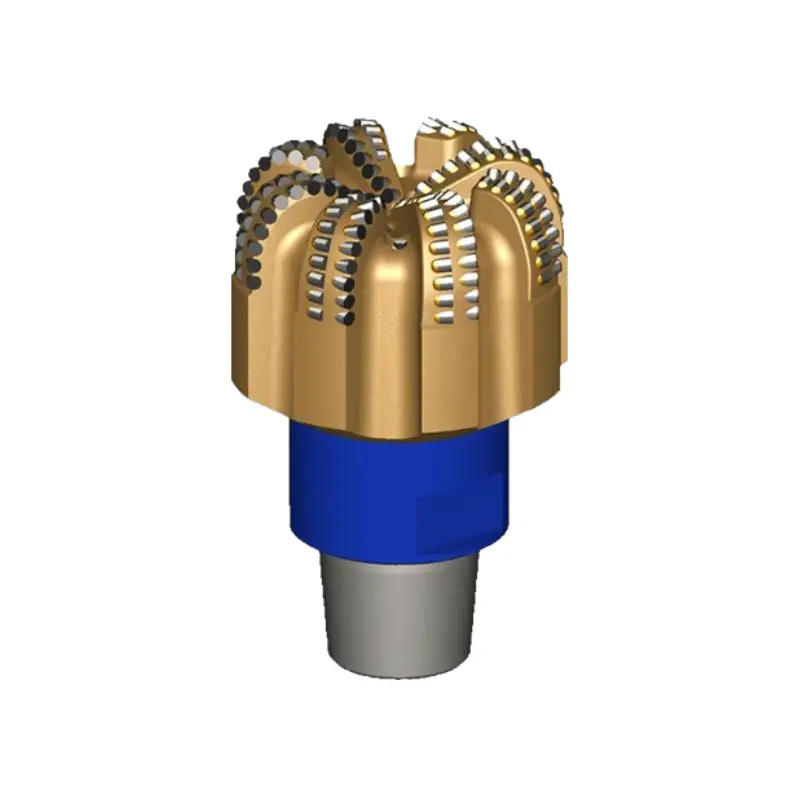
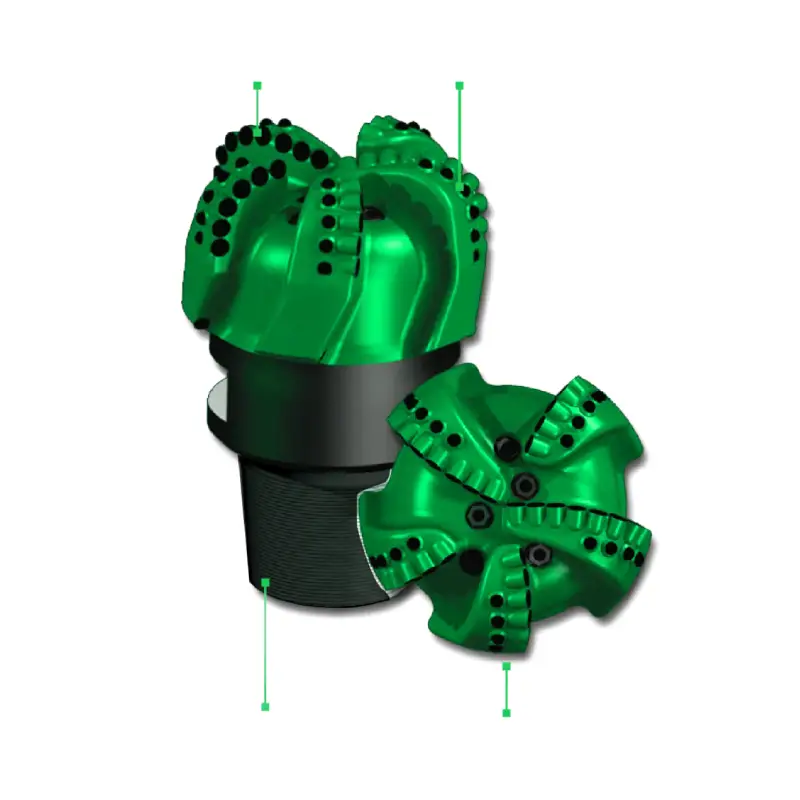

Fixed cutter drill bits, also known as PDC (polycrystalline diamond compact) bits, are widely used in oil, gas, and geothermal drilling. These bits feature a solid cutting structure where the cutters are fixed in place, providing efficient rock shearing and smooth drilling in soft to medium-hard formations.
Benefits of Fixed Cutter Drill Bits:
- High Drilling Efficiency – Fixed cutter bits shear rock continuously, reducing drilling time and increasing penetration rates. They are ideal for formations where speed and smooth operation are crucial, ensuring consistent progress without frequent adjustments.
- Durability and Wear Resistance – With diamond-tipped or carbide cutters, these bits withstand abrasion and heat, maintaining cutting performance over longer periods. This durability reduces the need for frequent replacements, saving operational costs.
- Smooth Hole Quality – The design ensures uniform cutting, producing cleaner boreholes with minimal vibrations. Smooth hole walls reduce problems during casing and cementing operations, improving overall well integrity.
- Lower Maintenance Needs – Unlike roller cone bits, fixed cutter bits have fewer moving parts, reducing mechanical failures. Their robust construction allows extended drilling runs, minimizing downtime and maintenance expenses.
What are Roller Cone Bits?
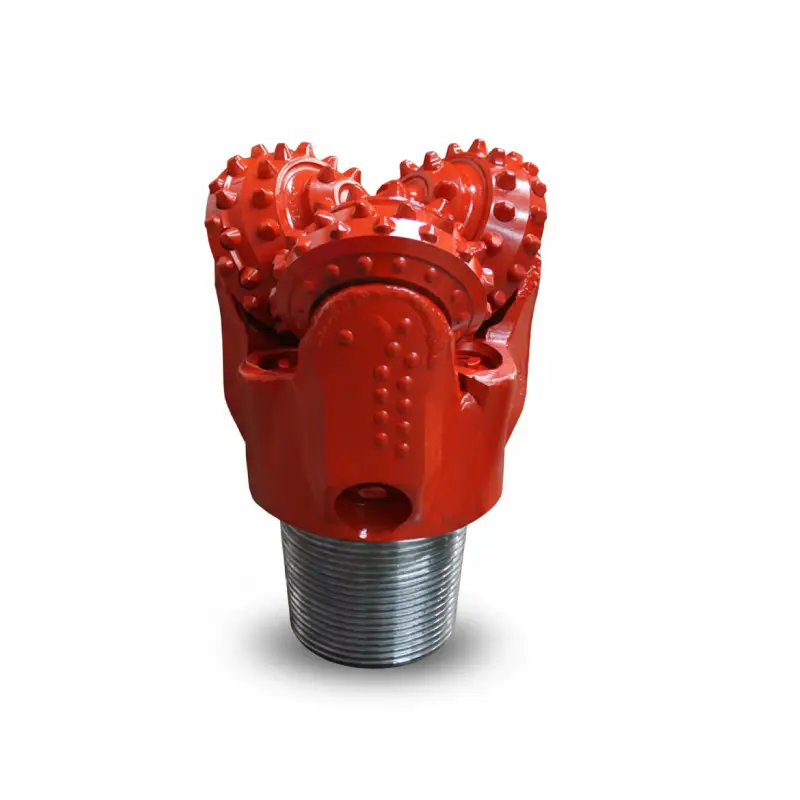
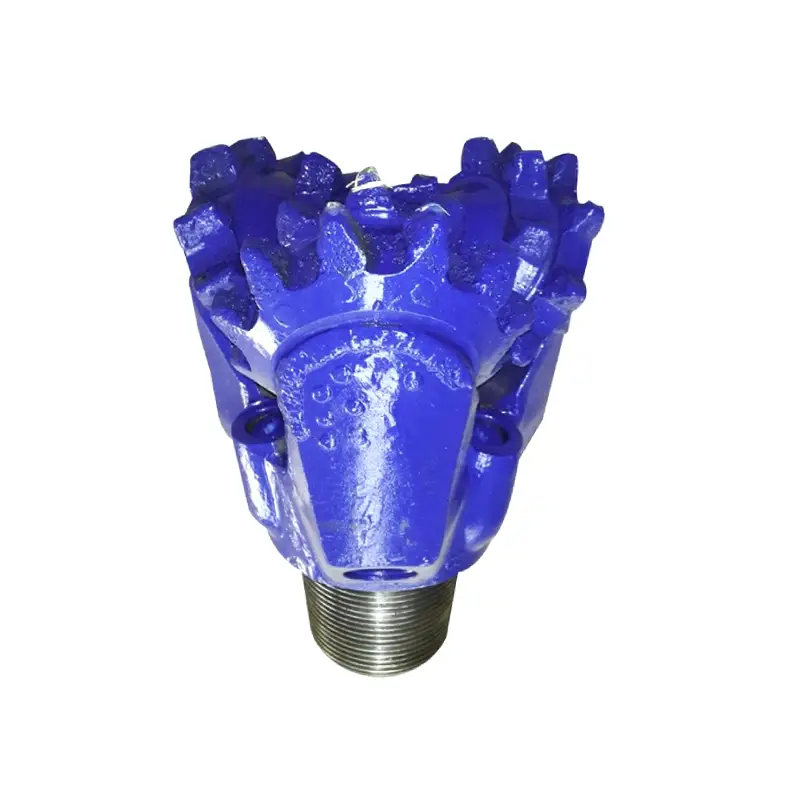
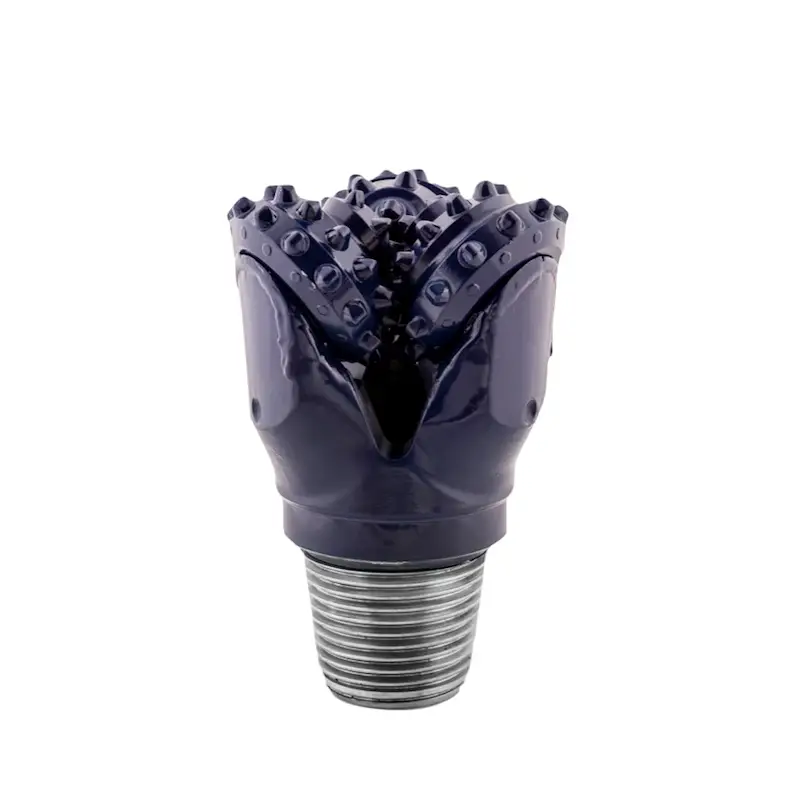
Roller cone drill bits are a type of rotary drill bit widely used in oil, gas, and mining industries. They feature rotating cones with embedded teeth or inserts that crush and grind rock formations efficiently, making them ideal for hard and abrasive terrains.
Benefits of Roller Cone Drill Bits:
- Durable Performance – Engineered to withstand high-pressure drilling environments.
Their robust construction allows roller cone bits to endure extreme pressures and abrasive rock layers, providing longer service life and reducing downtime for bit replacements during deep drilling operations. - Efficient Rock Penetration – Crushes rock effectively for faster drilling.
The interlocking teeth on the rotating cones break rock into smaller fragments quickly, improving penetration rates and ensuring more consistent drilling progress even in challenging geological formations. - Versatility – Suitable for various formations from soft to hard rock.
Roller cone bits can be customized with different tooth types and cone designs, making them adaptable for soft, medium, or hard rock formations, enhancing their effectiveness across multiple drilling scenarios. - Cost-Effective – Reduces drilling time and operational costs.
With higher durability and efficient rock breaking, these bits lower overall drilling expenses by minimizing replacements, reducing labor needs, and improving drilling speed, providing a strong return on investment.
Fixed Cutter vs Roller Cone Bits
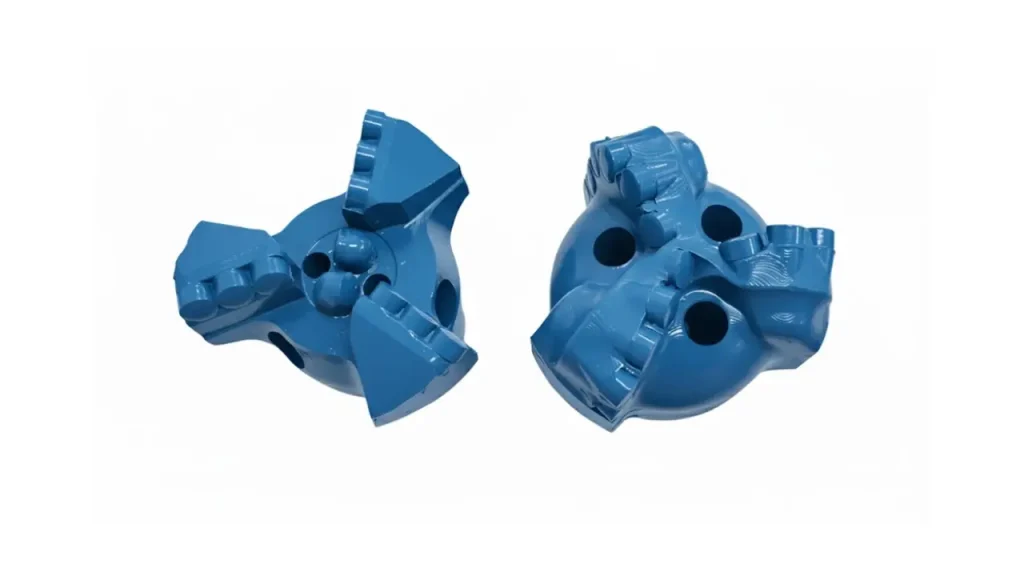
Fixed Cutter and Roller Cone drill bits are two main categories used in drilling operations. Each design offers unique performance characteristics based on rock type, formation hardness, and operational goals. Understanding their distinctions helps engineers and buyers choose the right bit for efficiency, durability, and cost control.
1. Design Structure
Fixed cutter bits have no moving parts. They use a solid body with cutting elements such as PDC (polycrystalline diamond compact) cutters that shear through rock directly.
Roller cone bits, however, feature rotating cones with teeth or inserts that crush and grind rock. Each cone moves independently, breaking the formation through impact and rolling motion.
2. Drilling Mechanism
Fixed cutter bits work by shearing and scraping the rock surface. The cutters slice layers of rock, offering continuous and smooth penetration, ideal for uniform formations.
In contrast, roller cone bits crush and chip rock by cone rotation. The rolling action applies high contact pressure, ideal for breaking hard and variable formations effectively.
3. Performance in Different Formations
Fixed cutter bits perform best in medium to hard, consistent formations where their sharp cutters can maintain steady penetration.
Roller cone bits are more effective in mixed or softer formations, where their rolling cones can adjust better to uneven hardness, providing stable performance across variable geology.
4. Durability and Maintenance
Fixed cutter bits generally have fewer wear points since there are no moving parts, leading to longer lifespan and less frequent maintenance.
Roller cone bits contain bearings and cones that wear over time. These moving parts require more maintenance and can limit lifespan, especially in abrasive formations.
5. Cost Efficiency and Application
Fixed cutter bits often have higher upfront costs but lower long-term expenses due to longer service life and faster drilling rates.
Roller cone bits are typically cheaper initially but may require frequent replacements. They remain a popular choice for short-duration or exploratory drilling projects.
Here are some differences between Fixed Cutter and Roller Cone Bits:
| Aspect | Fixed Cutter Drill Bits | Roller Cone Drill Bits |
|---|---|---|
| Design | Solid body with fixed cutters | Cones with rotating teeth or inserts |
| Drilling Mechanism | Shears and scrapes rock | Crushes and grinds rock |
| Best Formations | Hard and uniform formations | Soft to medium or mixed formations |
| Durability | High, fewer moving parts | Moderate, more wear points |
| Cost Efficiency | Higher initial cost, long lifespan | Lower initial cost, frequent replacement |
How to Choose Fixed Cutter and Roller Cone Bits?
Selecting the right drill bit depends on rock formation type, drilling depth, and operational objectives. Both fixed cutter and roller cone bits serve specific purposes in various geological conditions, so understanding key selection factors ensures maximum drilling efficiency and extended tool life.
Key Factors to Consider:
- Formation Hardness – Match bit type to rock strength.
Fixed cutter bits are best for hard, abrasive formations where continuous shearing delivers smooth penetration. Roller cone bits work well in soft or variable formations, where their crushing action easily breaks rock without excessive wear. - Drilling Speed Requirements – Choose based on rate of penetration.
Fixed cutter bits provide faster drilling speeds in stable formations. They maintain steady penetration rates, reducing operational time. Roller cone bits offer slower but more controlled drilling, ideal for unpredictable or changing rock layers. - Bit Durability – Assess longevity and wear resistance.
Fixed cutter bits last longer due to no moving parts, reducing replacement frequency. Roller cone bits wear faster from cone movement and bearing stress, requiring more frequent changes in demanding conditions. - Maintenance Needs – Consider inspection and replacement intervals.
Fixed cutter bits demand less maintenance, providing consistent performance with minimal downtime. Roller cone bits need regular inspection of bearings, seals, and cone wear to prevent operational delays and maintain efficiency. - Cost vs. Efficiency – Balance budget with performance.
Fixed cutter bits may have higher upfront costs but lower lifetime expenses through durability. Roller cone bits are initially affordable yet may incur higher costs over time due to frequent replacements and slower drilling rates.
Conclusion
Choosing between fixed cutter and roller cone bits depends on your drilling requirements, rock type, and project goals. Fixed cutter bits offer high-speed drilling in softer formations, while roller cone bits provide durability in harder rocks. Understanding their strengths ensures better efficiency and cost savings.
Proper selection and maintenance of drill bits can greatly enhance drilling performance and extend bit life. Using the right bit type reduces the risk of equipment damage, improves penetration rates, and ensures smoother operations on site. Investing in quality bits pays off in long-term productivity.
For reliable wholesale drill bits, get high-quality fixed cutter drill bits and roller cone drill bits from our Sinodrills. We provide durable, precision-engineered bits designed for maximum performance across various drilling conditions, helping you achieve efficient and successful drilling projects every time.


